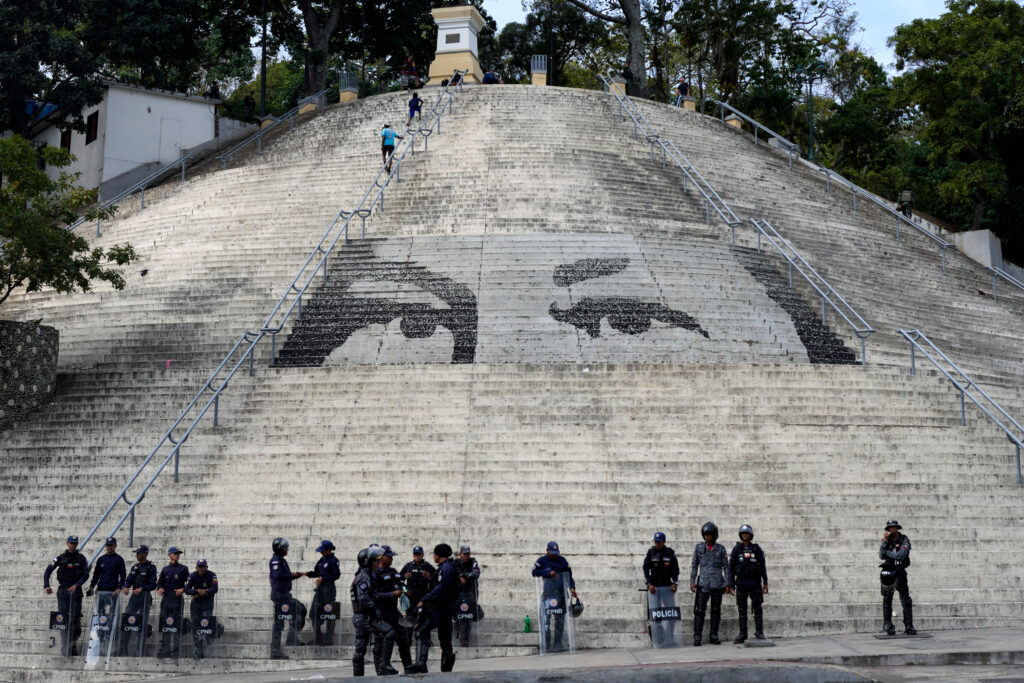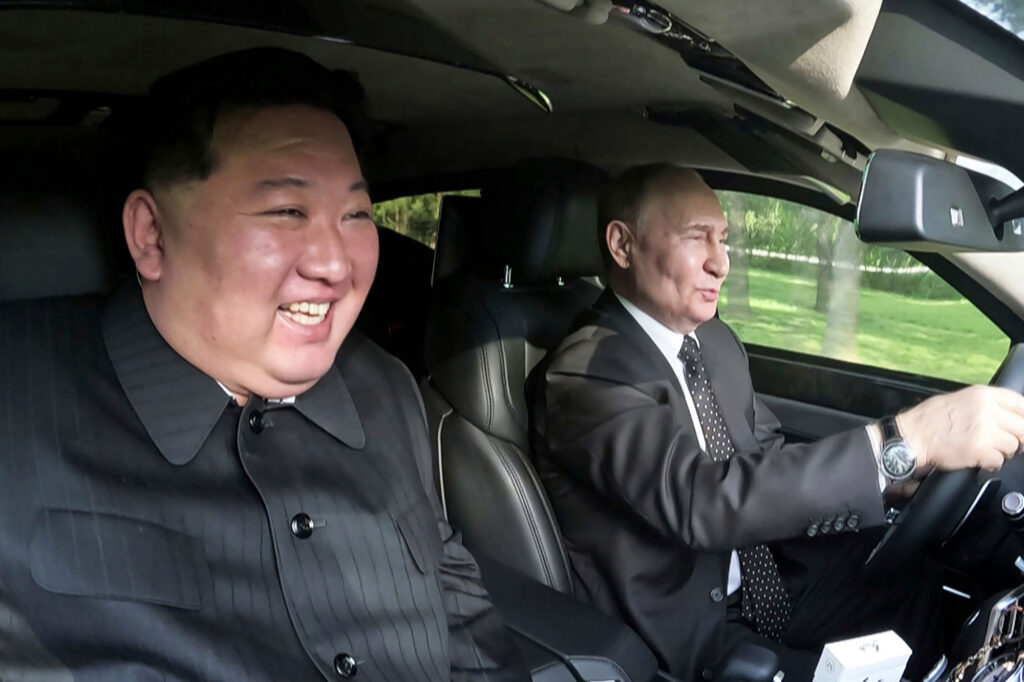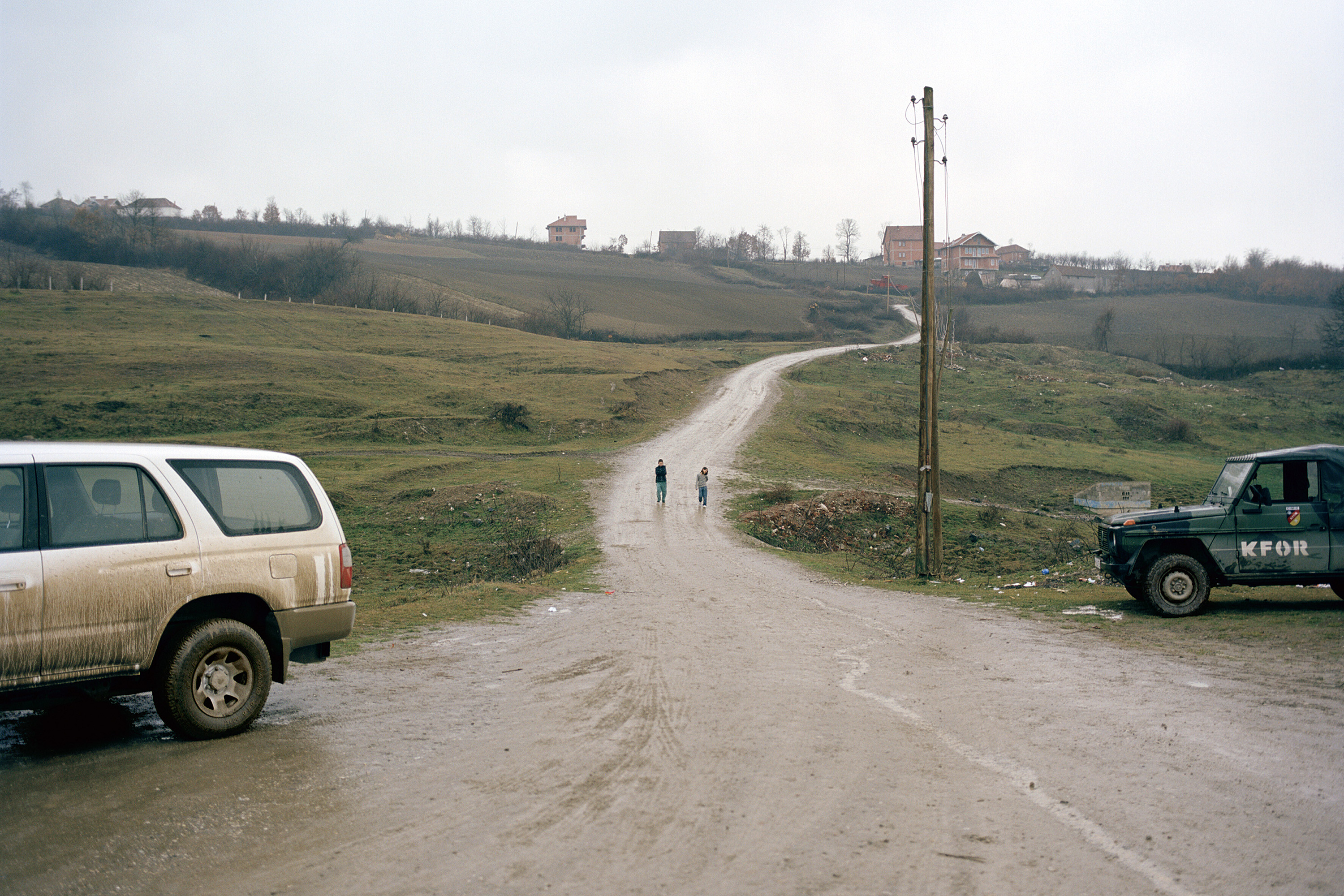Some might call Nicolás Maduro a despot, a thug, a criminal even. But classifying his regime is less clear cut. José Natanson, editor of Le Monde Diplomatique Southern Cone, alights on the suggestive concept of “chaotic authoritarianism” to illuminate Maduro’s exercise of power, and in so doing the many years of Chavismo generally.
Our other commissioned piece for Ideas Letter 32 is a cri de coeur from a longstanding human rights researcher and activist who spent years in China. Nicholas Bequelin raises more than a few questions and throws down a gauntlet (or three) which human rights practitioners ignore at their peril. Bequelin is no card-carrying Cassandra, but were his challenges to go unheeded, the human rights movement will have no one else to blame but itself.
Our curated selection commences with Sierra Leonean international relations scholar Zubairu Wai, who questions traditional conceptions (and shibboleths) around Pan-Africanism and arrives at both compelling and unanticipated conclusions. Alyssa Battistoni is next up, a super-talented social scientist who gets underneath the hood of the care economy, a sector more frequently described than analyzed.
We follow with a magisterial essay on the current Brazilian conjuncture from the coruscating pen of André Singer, one of São Paulo’s preeminent thinkers and analysts. Should you seek to understand the vast contradictions and complexities in Lula’s Brazil, there is no better place to start. Last, is a piece from our friends at Aeon, a wonderful essay from the IR scholar Inanna Hamati-Ataya who tells a story of culture where syncretism is the norm and no culture is pure.
Our musical selection this week comes from La France. Francoise Hardy, whose hypnotic and resplendent 1971 record La Question changed the face of French chanson music, is our featured artist. Her breathiness, the Bossa Nova background, and the behind-the-beat subtlety will become an instant earworm. Enjoy “Chanson d’O”.
—Leonard Benardo, senior vice president at the Open Society Foundations
Venezuela, Authoritarian Like No Other

José Natanson
The Ideas Letter
Essay
As Nicolás Maduro starts a new phase of government, Natanson argues that Venezuela’s regime exemplifies a distinct and chaotic form of authoritarianism, characterized by disorganized decision-making, internal power struggles, and pervasive corruption. Natanson applies the democratic theories of Adam Przeworski and Yascha Mounk to analyze Venezuela’s democratic erosion, offering a cautionary tale of how quickly a country can slide into authoritarianism.
“Even chaotic authoritarianism can be effective, and it seems to have been for the Chavistas. Venezuela is no failed state. It may not be able to provide quality public services—or even deliver basic state functions like stabilizing the country’s currency (hence dollarization) or securing the state’s monopoly on force (hence criminal gangs). But, driven by the imperative to survive, it remains a strong state when it comes to deploying social surveillance or intelligence services to detect and neutralize dissidence. After the last presidential elections in July, Maduro’s camp and the military have remained loyal. No street protests have forced the government’s hand into negotiating some agreed solution. The regime is isolated internationally but not absolutely so, thanks to the support of Russia and China, of Iran, Turkey and India. Maduro may actually have lost the election, but he is still winning the political battle.”
Human Rights on the Edge

Nicholas Bequelin
The Ideas Letter
Essay
The human rights movement faces a critical juncture as the postwar international order that created it gives way to a fragmented, multipolar world dominated by rising autocracies and diminishing Western influence. To remain relevant, the enterprise must reconcile its ideals with a shifting geopolitical landscape, adapt its strategies to prioritize context-specific rights, and find common ground with non-Western states. If it doesn’t, the human rights movement risks being sidelined altogether.
“The rights movement must also examine its own role in the growing disaffection it faces. Nearly eight decades since the Universal Declaration of Human Rights, defending the accomplishments of the human rights enterprise often seem contrived and rings hollow in the face of ongoing atrocities. Once-compelling factors—political, social and economic—have lost their force amid deepening North/South inequalities, democratic decline, entrenched impunity for powerful states, and blatant double standards. Actions taken to defend the rights of individual and groups is always worthwhile. But the larger question is whether human rights is still the right enterprise to invest in if the objective is to have systemic influence on state behavior.”
Pan-Africanism as World Making
Zubairu Wai
The Malcolm Effect
Podcast
Wai delves into the complexities of Pan-Africanism, challenging static or essentialist notions of “African solutions” by emphasizing the continent’s dynamic realities. He critiques attempts to romanticize African identity as detached from the global influences of colonialism and modernity. Instead, Wai argues for situating solutions in Africa’s present material and political conditions, integrating both local and global knowledge to address systemic issues.
“So African solutions, it’s not about something necessarily intrinsically or primarily African, but an idea that is grounded in African normativity and location in which you bring multiple influences in order to be able to propose a solution to the problems that face the continent from the perspective of the continent.”
Ideology and the Crisis of Care
Alyssa Battistoni
Red Medicine
Podcast
A deep dive into the undervaluation of care labor, exploring its roots in gendered and racialized ideologies, and its broader implications in capitalist societies. Drawing on feminist and Marxist critiques, Battistoni examines historical and contemporary theories about why care work is poorly paid yet essential, arguing that ideology critique is only a first step.
“I think often people sort of skip to imagining that like the very basic function of sort of saying like, look, this is ideology then kind of itself has this like direct connection to the emancipatory, the thing of sort of like pulling the veil away from people’s eyes or revealing the reality of oppression as it exists and then that kind of active revealing knowledge or kind of learning the truth or something can just have like a political function or an emancipatory function on its own. And I think that can be part of it, but I certainly think there’s another step that often has to happen.”
LULISMO 3.0
André Singer
New Left Review
Essay
Brazil’s political landscape under Lula’s third presidency is defined by a precarious balance between compromise and constraint, as fiscal austerity and a conservative-dominated Congress hinder the administration’s ability to implement bold reforms. While Lulismo retains support among the country’s poorest, a divided right, exemplified by the rise of radical figures like Pablo Marçal, signals an increasingly volatile electoral future leading into the 2026 elections.
“Taken as a whole, then, the municipal results may indicate a political process that bears comparison to that in the United States. There, Dylan Riley and Robert Brenner have argued, the American working class has fractured into two structurally opposed electoral blocs: those with college degrees, who have stayed with the Democrats, and those without, who have flocked to Trumpism. In Brazil, we have seen something like the inverse: a subproletariat that remains loyal to Lulismo, and a new precariat—comprised of low-waged workers who are gradually becoming self-employed in greater numbers—which, along with the pinched and resentful fractions of the petty bourgeoisie, has moved towards the extreme right, entering into an alliance with the agriculture, extractivist and service industries, including finance.”
There are no pure cultures
Inanna Hamati-Ataya
Aeon
Essay
The 1990s narrative of globalization as a uniquely modern phenomenon is fundamentally misleading, obscuring the long history of human mobility, exchange, and cultural interconnection. Far from being a recent and destabilizing force, globalization has been a hallmark of human history, shaping our shared culture and identities through countless migrations, exchanges, and adaptations that challenge the rigid ideologies of nationalism and anti-globalism.
“Our present appears that way only because we have forgotten our common past. Globalisation didn’t begin in the 1990s, or even in the past millennia. Remembering this older shared history is a path to a different tale, which begins much, much earlier—long before the arrival of international supply chains, ocean-going sailing ships, and continent-spanning silk roads. The tale of globalisation is written across human history. So why do we keep getting the story so wrong?”
